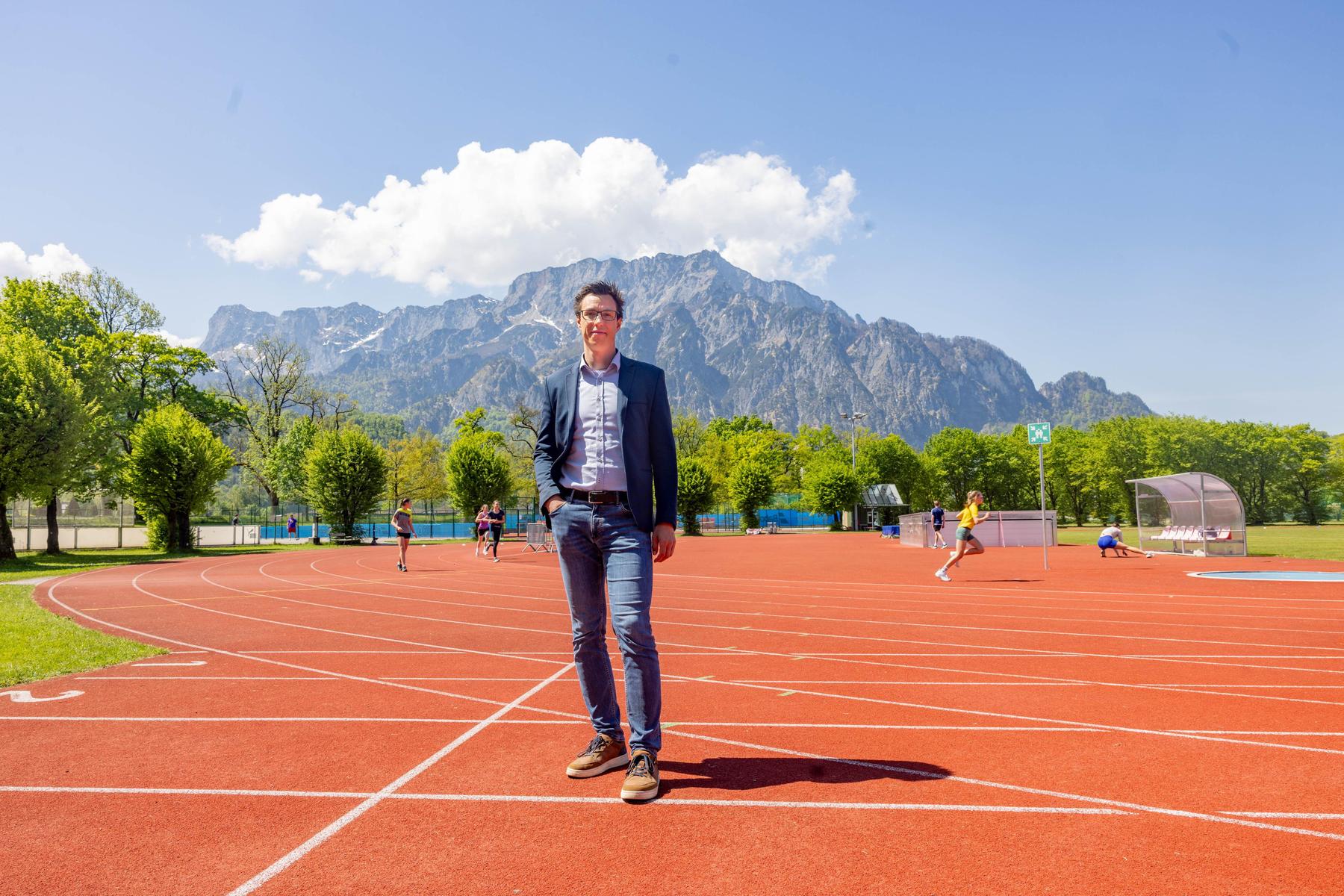Does moving us to shop or gardening? – Diepresse.com

At the University of Salzburg, sports psychologist Markus Reichert tests whether the normal movement makes everyday life healthier and more satisfied. This is documented for active sport.
Markus Reichert knows the top sport. In his youth, the 38-year-old German faced a professional career as a racing wheel athlete. He ended up in the top 40 on the Türkiye tour, the legendary hard Ötztal cycling marathon among the top 15. But he decided on science, and here too, top performances are required. First thought Enrich In medicine, but had to wait for a study place. « I decided to start sports sciences first, » he says.
He quickly focused on sports psychology and health prevention. On Karlsruhe Institute of Technology (Kit) he got to know the then new method of using sensors and smartphones to record health or movement data. Reichert has been Reichert since autumn 2024 Professor of sports and movement sciences at the University of Salzburg, He succeeded the sports psychologist Günter Amesberger to. For Reichert, who now only increases the racing bike or mountain bike in a hobby, not only high -performance athletes, but also as normal active people at the center of his research. « I deal with the health consequences of physical activity in everyday life. » Already his 2019 Dissertation completed the question of what effects the movement in everyday life like climbing, shopping or gardening on mental health.
Tracking with the smartphone
« There are many examinations of how sports mental illnesses, e.g. depression, can influence or prevent or prevent it, » explains Reichert. But the effect of everyday movements on the psyche has hardly been examined. Only since it is possible with mobile devices such as smartphones to easily grasp these activities, can this area be more sensible. The test subjects receive sensors. Your movements are tracked via appropriate apps. The subjects also conduct online diaries to document activities and moods.
With the help of the recorded data, real sports times and normal everyday movements can be distinguished. Sport raise the mood and lower the stress level, says Reichert. There are also positive effects on the mood in everyday activities.
« Not only sport, but also everyday activity is good for the psyche. »
Markus Reichert,
Sports scientist, University of Salzburg
The effect even shows in the brain structures: there is a significant connection between physical activity and the gray brain substance of the test subjects. « It is exciting that everyday activity has a very quick impact on the condition, » says the sports psychologist. To get up for sport, people often find it more difficult to make simple everyday devices. Especially if you have an acute depressive thrust, it is hardly possible to put on your running shoes. With everyday activity, the hurdle is not that big. Reichert is currently working with his team on one EU project, to further develop the first results of the studies in the direction of digital health treatments.
Reduce the desire for addicts
He is interested in the question of how different people react to everyday activities in what context and whether the results can also be transferred to sick people. At the same time, the prototype of an app is developed that makes suggestions for everyday movements and thus gives impetus for activity. « Our goal is to achieve more everyday activities with interventions and thus achieve positive effects for mental health in the medium and long-term. » Everyday activity could also help with addiction to reduce the desire and thus learn alternative action strategies, says Reichert.
At the moment, he is also busy establishing contact with other research groups at the University of Salzburg. « There are a lot of expertise here that is available for interdisciplinary collaborations. » His passion for sport has remained, time to pedal, but hardly: his son Julian was born three weeks before the change to the University of Salzburg. The family comes first for Reichert in their free time.
TO PERSON
Markus Reichert (38) completed his sports degree in 2012 at the Karlsruhe Institute of Technology (KIT), he received his doctorate in 2019. In 2021 he moved from the KIT and the Central Institute for Mental Health to the Ruhr University Bochum. He has been a professor of sports and movement sciences at the University of Salzburg since October 2024.







